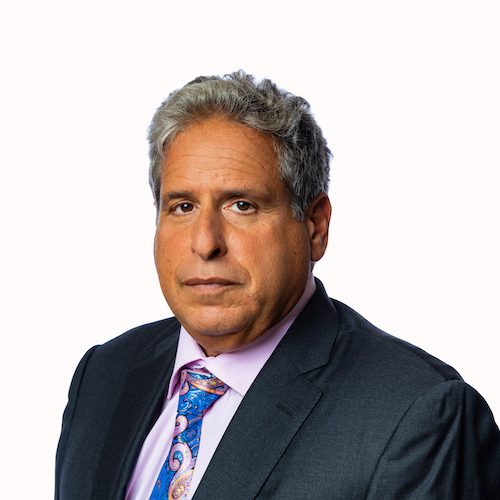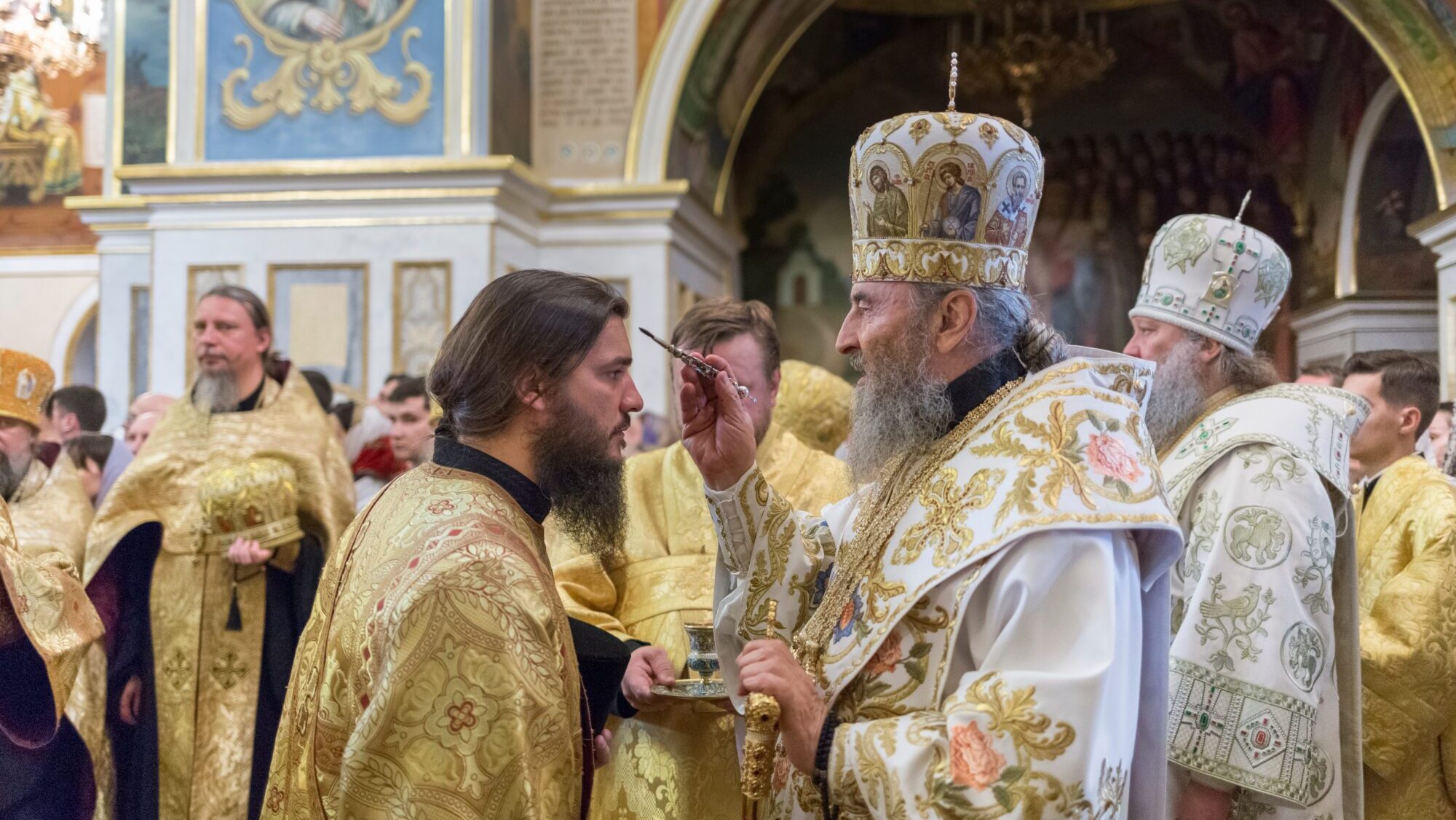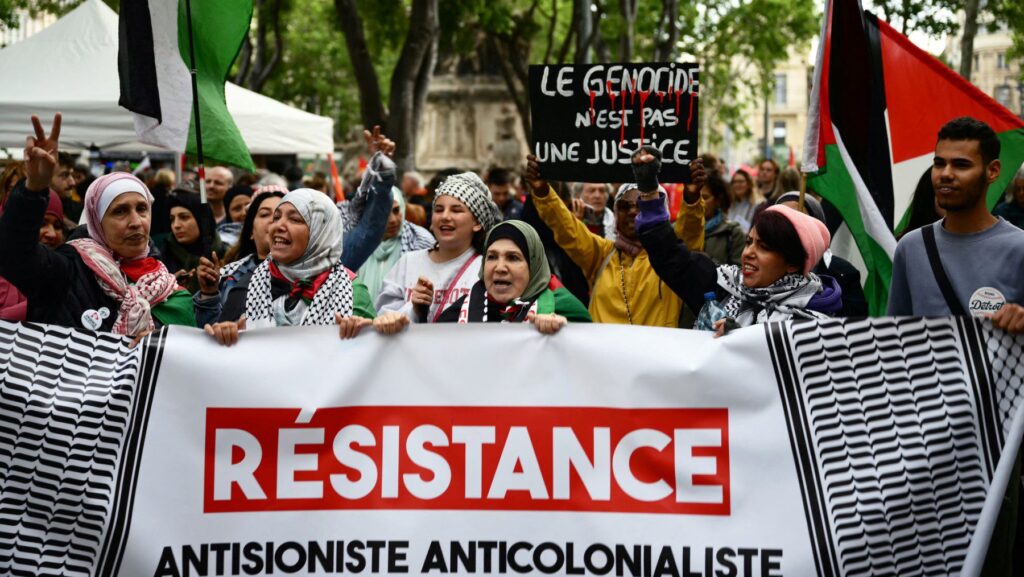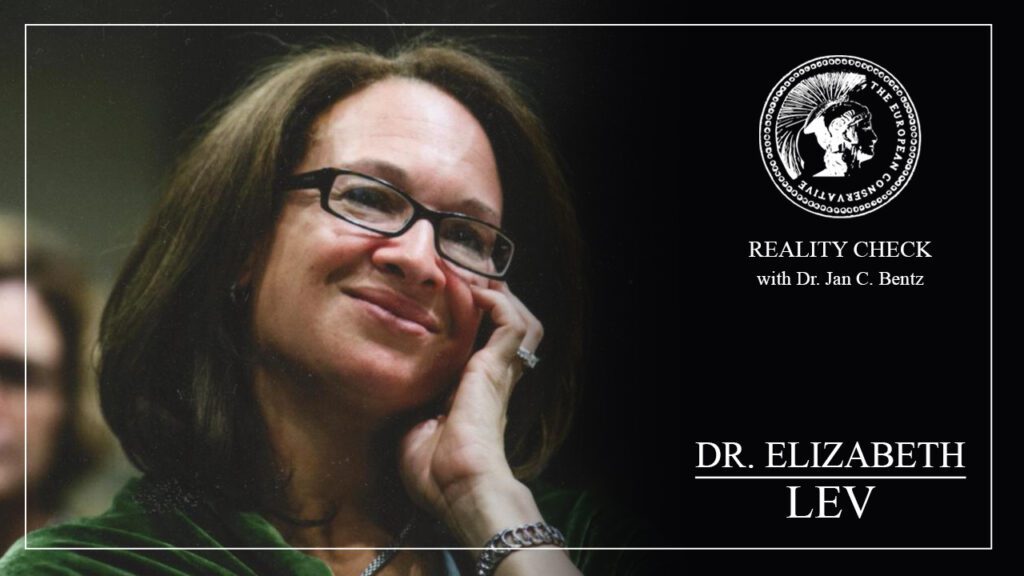The Ukrainian Orthodox Church (UOC), which was previously affiliated with the Patriarchate of Moscow, has been under intense pressure from the Ukrainian government headed by President Volodymyr Zelensky, as the government has accused the church of having ties to the Russian government following the February 2022 invasion.
Despite the fact that the UOC cut ties with Moscow and its Patriarch Kirill in May 2022, Zelensky’s government has raided churches, arrested priests and other clergy, and in October, the Ukrainian Parliament proposed outlawing the OUC entirely.
The European Conservative spoke to Bob Amsterdam, the lawyer representing the Ukrainian Orthodox Church, who is leading the church’s international response against the proposal to ban the church’s activities in Ukraine. He is the founder of Amsterdam & Partners LLP, a boutique international law firm with offices in London and Washington, DC. He has extensive experience in the region, having been arrested by Vladimir Putin in Moscow and having defended Ilya Ponomarev, an exiled Russian State Duma Deputy who was subsequently granted Ukrainian citizenship and is now fighting against Russia as part of Ukraine’s Territorial Defense Forces.
The government crackdown has seen Ukrainian Orthodox Church (UOC) clergy members arrested and some stripped of their citizenship in Ukraine. What is the most egregious single case you are aware of against a clergy member by the Zelensky government?
Sadly, there have been many, many cases of persecution against UOC members over the past few years, with multiple clergy members being harassed or jailed.
The attacks on the elderly, senior clergy, or metropolitans are some of the most egregious. For the crime of having one flyer on his computer, which he believes was planted by the secret police and never distributed, Metropolitan Jonathan of Tulchyn and Bratslav, who was 75 years old and a famous composer, has been sentenced to five years in jail.

One of the more high-profile cases is the treatment of Metropolitan Pavel Lebid, who is a vicar at Ukraine’s most important monastery in Kyiv. Pavel has consistently condemned Russia’s actions in the war and is known for spending hours on end praying for Ukrainian soldiers, but he is currently being detained by the Ukrainian security services and has been refused bail.
Both Jonathan and Lebid face the vague charge of “offending the religious feelings of Ukrainians,” which features in nearly every criminal case launched against UOC clergy. By doing so, the state is criminalising legitimate religious debate and commentary on the part of UOC clergy and ignoring egregiously offensive remarks made by Ukrainian officials and representatives of the newly created OCU.
The Ukrainian security service has also cancelled the Ukrainian Orthodox Church’s lease on the monastery where Pavel is a vicar and is seeking to evict the remaining worshippers, including 200 monks. The UN’s High Commissioner for Human Rights has raised concerns, but the Ukrainian secret service claims that Pavel has insulted the “religious feelings of Ukrainians.”
Similar scenes are unfortunately repeating themselves across Ukraine. Worryingly, the Parliament is taking this action despite the church’s priests, its leadership, and its thousands of followers fully supporting their country against Russian aggression.
Reports claim that many Ukrainians have left the UOC and now attend the government-supported Orthodox Church of Ukraine, what are the real numbers of UOC parishioners currently in the country, to the best of your knowledge?
The most recent independent study, conducted just before the onset of the war, reported a membership of over 5.5 million Ukrainians within the Ukrainian Orthodox Church. Recent numbers are obviously harder to come by, but current estimates suggest that only around 1.7 million Ukrainians remain affiliated with the church.
Sadly, this paints a depressing picture of nearly four million worshippers being pressured into aligning with the state-sanctioned Orthodox Church of Ukraine or worshipping in private out of fear.
For a millennium, Orthodox Christians in Ukraine have prayed in Church Slavonic and had their own set of liturgies steeped in tradition, passed down through the generations. Under the Ukrainian Government’s proposed legislation, these historic practices are being replaced with a new, state-sanctioned religion that worships in another language with different liturgies.
For many Ukrainians, this is simply not right, and they do not wish to see their historic religious practices disregarded. That’s why there are still over a million people who wish to continue with the Ukrainian Orthodox Church, and the Ukrainian Parliament should allow them the freedom to continue practising their religion.
Given the enormous pressure placed on members of the UOC and, generally, the black PR campaign of the government, there are no believable numbers to discuss.
It has also been claimed that the UOC still has far more clergy than the government-supported church, what are the current figures in terms of priests, nuns, and monks still within the UOC?
As the oldest Orthodox Church in Ukraine, with a heritage tracing back over 1000 years, the Ukrainian Orthodox Church has traditionally been the only Orthodox sect in Ukraine. According to Ukrainian government statistics in 2022, the church was comfortably the largest religious network in the country, with its 10,000 or so clergy members. Since the Ukrainian government began its suppression of the church things have changed. We don’t have current figures for the number of priests, nuns, and monks, but with arrests across the country, countless religious leaders are leaving their formal positions to worship in secret.
Again, we hesitate to hand out exact numbers, but it is believed to be in excess of ten thousand. What has developed is an underground church that evades calculation and is reminiscent of Soviet times.
Ukraine is struggling in terms of its counter-offensive against the Russians, do you foresee an increase in persecution against the UOC if the situation continues to deteriorate on the battlefield?
It’s really heartbreaking to witness the Ukrainian Orthodox Church bearing the brunt of Russia’s aggression. Around 250 religious structures have been damaged, and major religious sites like the Orthodox Cathedral in Odessa have been reduced to rubble. Members of the church are caught in this awful crossfire—dealing with attacks from Russia and harassment from their own government. And the toughest thing is, as this war drags on, more and more regular worshippers are being unfairly caught up in the rising anti-Russian sentiments within Ukraine.
What steps have you taken in the international community to have the plight of the members of the UOC heard? Have you faced harsh reactions due to the divisiveness of the conflict overall, or have countries or groups expressed interest in the situation?
We’ve been doing our best to shed light on the struggles faced by the Ukrainian Orthodox Church globally. It’s been disheartening because, despite reaching out to different international groups, we have yet to see real action on the issue.
One interview I gave to Tucker Carlson has had over 53 million views. But here’s the thing: things are bad and getting worse for church members, and we need action now.
I fully understand that criticising the Ukrainian government will bring some hesitancy, but we really need countries and advocacy groups to step up, show interest, and get involved in addressing what the church is going through. It’s not just about politics; it’s about people being denied their right to worship, and we can’t let that slide under the radar.
What is the future of the UOC in Ukraine? If the Zelensky government were to collapse, do you foresee another government simply taking up the same policies in the name of anti-Russian sentiment, or do you think a change in government might lead to a relaxing of oppression against the church?
I would not comment on internal Ukrainian politics, though I would note President Zelensky’s refusal to hold elections and the banning of opposition parties. The possibility of a new government emerging in Ukraine seems quite slim. It’s truly disheartening to witness such challenges to democratic principles from a country which began this war as the defender of liberal values.
In this scenario, it’s hard not to worry about the potential consequences for the Ukrainian Orthodox Church. The fear is that with the growing consolidation of Zelensky’s government, the persecution faced by the church will continue to spiral without coordinated international action. If this were to happen anywhere else in the world, there would be public outcry. It is in the interests of all Ukrainians—and those who wish to see democratic norms and the rule of law upheld in the country—to demand Ukrainian freedom of religion is maintained.
Just last weekend, the UN spoke and put [it] strongly: ’’Freedom of Religion Must Prevail in Ukraine, Even as War Drags On, Senior UN Human Rights Official Tells Security Council.’’
Pope Francis has expressed an interest in trying to facilitate dialogue with Russian Patriarch Kirill to forward peace, but has the Catholic Church or any other Western churches been receptive to the plight of the UOC in your experience?
The UOC has gone to great lengths to ensure a complete operational separation that has already occurred de facto back in the 90s. There is no interest in any formal dialogue with Patriarch Kirill.
As such, facilitating dialogue with Patriarch Kirill is not enough. There’s plenty of disappointment amongst members of the Ukrainian Orthodox Church who I speak to about what feels like a lack of action from both the Catholic Church and other major Western churches in response to the struggles they are facing.
As the Ukrainian Orthodox Church continues to face unjust targeting, harassment, and expulsion from the Ukrainian government, the need for a united front of solidarity among Christians globally cannot be stressed enough. I genuinely hope that as awareness grows, the international Christian community will not only offer their sympathies and prayers but also take heartfelt action to safeguard the rights and well-being of the Ukrainian Orthodox Church.





